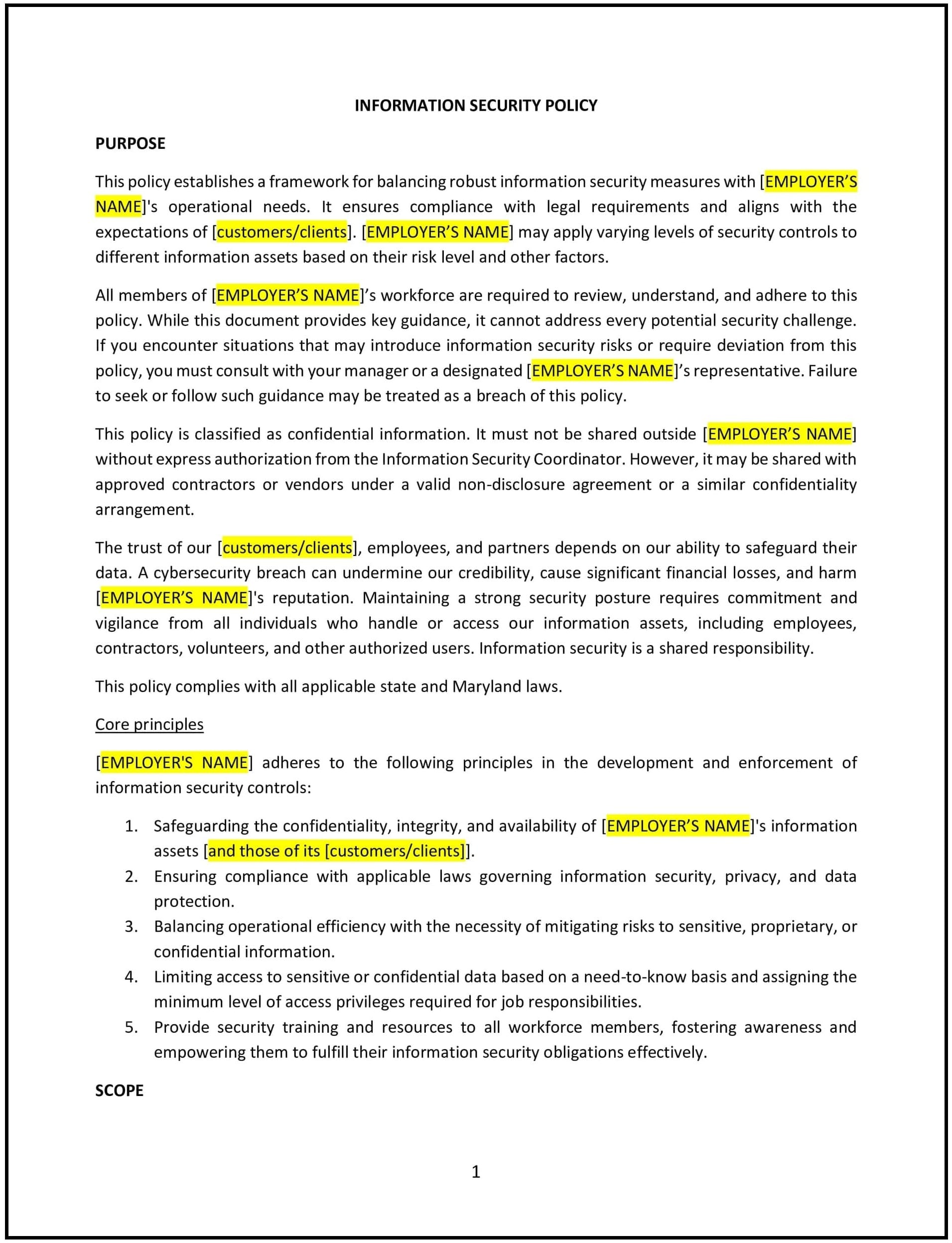Information security policy (Maryland): Free template
Got contracts to review? While you're here for policies, let Cobrief make contract review effortless—start your free review now.

Customize this template for free
Information security policy (Maryland)
This information security policy is designed to help Maryland businesses protect sensitive data and systems from unauthorized access, breaches, and other security threats. It provides a framework for managing information security, mitigating risks, and maintaining business continuity.
By adopting this policy, Maryland businesses can safeguard their information assets, promote trust, and align with industry best practices.
How to use this information security policy (Maryland)
- Define information security: Specify what constitutes sensitive information, such as customer data, employee records, or proprietary business information.
- Establish access controls: Outline guidelines for granting, monitoring, and revoking access to information systems and data.
- Set data protection standards: Include encryption, password management, and other measures for protecting stored and transmitted data.
- Include incident response procedures: Provide steps for identifying, reporting, and addressing security incidents, such as breaches or unauthorized access.
- Require employee training: Implement regular training programs to ensure employees understand their responsibilities in maintaining information security.
- Conduct regular audits: Schedule periodic reviews of systems and practices to identify vulnerabilities and make improvements.
- Reflect Maryland-specific considerations: Address state laws, such as the Maryland Personal Information Protection Act (PIPA), that impact information security practices.
Benefits of using this information security policy (Maryland)
Implementing this policy provides Maryland businesses with several advantages:
- Protects sensitive data: Safeguards customer, employee, and business information from security threats.
- Reduces risks: Mitigates potential financial and reputational harm caused by data breaches or unauthorized access.
- Encourages accountability: Assigns clear roles and responsibilities for maintaining information security.
- Promotes trust: Builds confidence among clients, employees, and partners in the business’s data protection measures.
- Aligns with Maryland standards: Reflects state-specific requirements for data security and breach notifications.
Tips for using this information security policy (Maryland)
- Communicate expectations: Share the policy with employees during onboarding and through regular updates.
- Implement secure systems: Use tools like firewalls, antivirus software, and multi-factor authentication to enhance protection.
- Monitor continuously: Regularly assess systems for vulnerabilities and respond proactively to potential threats.
- Establish clear reporting: Make it easy for employees to report security concerns or incidents without fear of retaliation.
- Stay updated: Regularly review and update the policy to reflect changes in Maryland laws, technology, or industry standards.